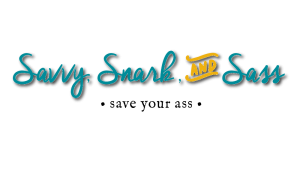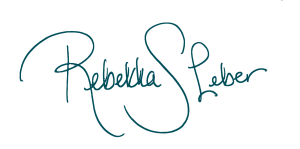Why the easy solution to writing problems is a bigger problem in itself.
Worksheets are the root of a vicious cycle.
I’ll freely admit, I have used worksheets, workbooks, and many templates over the years. And, just as I have come to loathe them in my teaching, I am starting to loathe them in writing as well.
Worksheets are making me lazy. They are also making me a less creative person. And the the weird part is, I cannot figure out why.
In teaching, the reason I hate worksheets is that they don’t make the students think. They are just fill in the blank boxes that regurgitate content from the book. They don’t require you to rework the material or think about it in a new way. Perhaps this is why I am starting to hate worksheets for writing. While, unlike their academic counterparts, they do make you think about what is being written, the responses tend to be vague, unthoughtful, and in general, nothing you didn’t already know or have figured out prior. I do not find myself inspired when using worksheets, let alone discovering new, inventive ways of engaging with my material.
But, I still cannot figure out why?
The usual suspects for these types of “workstuffs” (or in other words, the outside resources we use when organizing our stories) tend to be character questionnaires, setting templates, and plot outlines. They are always lengthy… I’ve seen character question sheets titled “100 Questions for Complex Characters.” Why the hell do you need to answer that many questions about your character? Knowing their favorite ice cream has no bearing on how they make their decisions, which does have bearing on the story, as a strong character’s decisions are what drive the plot.
This brings us to our first problem with workstuffs.
“Writing well in a vacuum is impossible. You cannot write a strong story in a dark closet all by yourself, which is the problem with workstuffs. It’s busy work that you do by yourself, with only you to evaluate the results.”
As I often do when I have my own writing dilemma, I threw the question out to my writing slack, where I keep my ever so handy treasury of writers. It’s like having a bunch of experienced writers on retainer… or as I like to think of them, having their souls trapped in my laptop for eternity in order to do my bidding. Yes. Yes….

So, having thrown out the question: “Do you find worksheets and workbooks helpful, and if not, why?” this was the analysis of the responses I collected:
Workstuffs, through some amazing, dark sorcery, manage to be incredibly long and yet lack substance. As Christine Brennecke, author of Seven Shards: the Colors of Wine, said in our conversation about why workstuffs suck, she summed it up best by saying, “Too many words. Not enough good words.” Somehow, they say a bunch of crap, yet say nothing at all while providing no assistance to really solving your problem.
Which brings me to the point made by Elayna Mae Darcy, author of They Are the Last and producer of the podcast SpeakBeasty, “They basic AF!”. Yet, they accomplish this while still being incredibly complicated to figure out. Often times, they serve as clickbait to get you to a writer’s website, where they do the majority of the hawking of their wares. “Throw up a 99 Questions to Ask Your Character worksheet on a website, and suddenly there is an unspoken agreement between writers,” as Elayna calls it: ‘If I help you, you’ll buy my shit.’
The unfortunate problem with that agreement is you’re getting the short end of the stick. Chances are that the content wasn’t even original. It was probably just some regurgitated crap they saw on another website once. Seriously, compare and contrast these resources next time you are tempted to use one. It is surprising how often material gets re-purposed. Author and Editor Elan Samuel, of The Warbler book review blog and Story Perfect Editing fame, pointed out the big flaw in this system: “They’re usually a very basic concept, something every writing tip/instructor/resource delivers, with the intent of driving more traffic to the site.”
“Fundamentally I just find the entire concept of ‘worksheets’ useless if you’re not directly involved in a course/class where your work is going to be actually evaluated by another human being. Just putting up these random ‘exercises’ for people to use with no supervision or guidance is always useless, in my opinion.” – Liam Dynes
Many of the workstuffs you find on the internet, especially on author websites, are the most basic format and the most basic methods. Another valid argument Elayna Mae Darcy makes against workstuffs is that despite being a visual method of organizing your thoughts, they fail at stimulating the user visually. “They don’t visually engage me, like at all,” says Darcy. “I LOVE worksheets and forms to print, but I can legitimately never find ones that are interesting looking enough to keep my attention past the title.” This became a general consensus among the other writers, and even I could relate to this one. I don’t know how many times over the years I have revamped pre-made worksheets in my History and Special Education English classes. Sometimes I cut them up and reorganize them, cutting out pieces I don’t want, adding pieces I do, taping them all back together into a new form. Other times, I just take ideas from them or a section of reading, and make my own handout from scratch. In many cases when I do this, it isn’t because I don’t think the worksheet is visually stimulating in an aesthetic sense, but rather, it confuses the student just by looking at it. It does not generate a logical train of thought when working. Good design, in both form and function, solves this problem.
On that note, this was also a downfall of workstuffs in the opinion of Liam Dynes, author of Rockets. Workstuffs are meant to be universal, which tends to make them generic. As a result, they often focus too much on the mechanical, rather than rooting out the real source of a writing problem. As Elan Samuel said, “The exercises are often vapid and don’t dig into the problems of writing beyond the mechanical.”
Content-wise, they are all form and no function, which is completely the opposite problem of what we see with their design.
As a teacher though, I find the absolute worst issue I have with writing worksheets is the second point Liam made about how to evaluate what you actually put into the worksheet.
“Fundamentally I just find the entire concept of ‘worksheets’ useless if you’re not directly involved in a course/class where your work is going to be actually evaluated by another human being. Just putting up these random ‘exercises’ for people to use with no supervision or guidance is always useless, in my opinion.” – Liam Dynes
While workstuffs are inherently filled with surface flaws, even if those flaws were remedied, this would still be a major issue. Without someone to review the work you have done on the worksheet/workbook/workstuff, how is a writer to gain any actual insight into the problem they were trying to fix?
“Throw up a ’99 Questions to Ask Your Character’ worksheet on a website, and suddenly there is an unspoken agreement between writers… ‘If I help you, you’ll buy my shit.’” – Elayna Mae Darcy, They Are the Last
Perhaps, the one bright side of worksheets is that they do help you to see the flaws in your story. If you can’t fill in the blanks, then yes, ultimately there is a problem. But once that is discovered, workstuffs seem to be the worst way you can fix that problem. This is why it is incredibly vital, not helpful, but vital to find a writer’s group. Writing well in a vacuum is impossible. You cannot write a strong story in a dark closet all by yourself, which is the problem with workstuffs. It’s busy work that you do by yourself, with only you to evaluate the results.
Luckily, we live in the age of the internet. Finding a writing group has never been easier… *cough* if you live in a big city *cough*. But, even those who do not have luck with finding local groups, can still interact and exchange writing with real people in writing forums, online communities, and other writing spaces, like NaNoWriMo.
Over here at IndiePen Ink, we hope to begin cultivating a rich, inclusive and supportive environment. One of our future ambitions is to have a forum and several targeted writing communities. If you would like to help us start growing our community, reach out to us on twitter @indiepenink or email me: sass@indiepenink.com.
If you are really tripped up by a writing dilemma, no matter how specific to your story, visit our Savvy, Snark, and Sass page. They’re like RPG healers, specifically trained to heal your writing ailments. Leave a message for them describing your specific writing issue, and any possible solutions you have tried that did not work, and the girls will give you three different possible solutions based on their writing experience. They are currently taking submissions that will be used in a future show, hosted by Indiepen Ink, Savvy, Snark, and Sass (…Save Your Ass).
Coming Soon to an Internet near you!
Write on, young savior,




